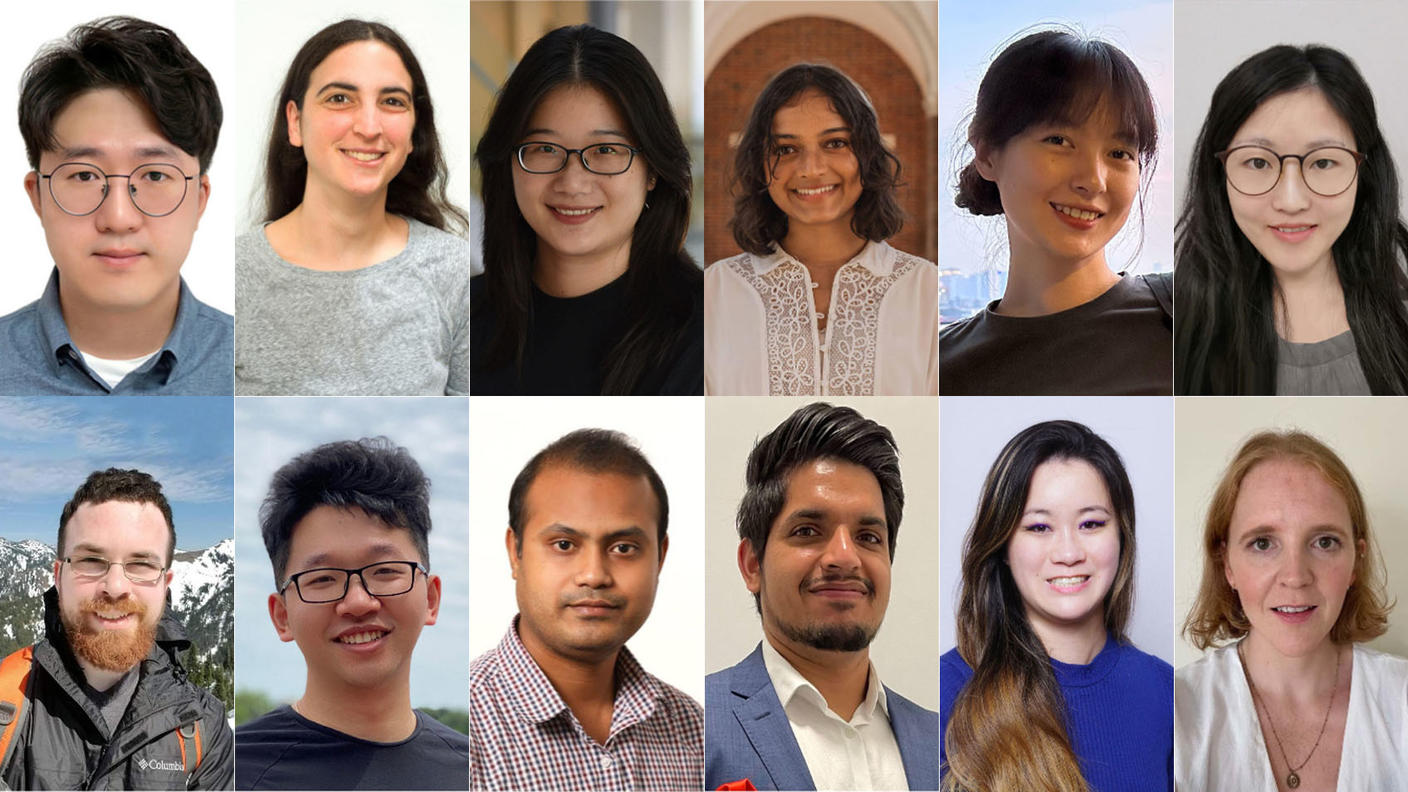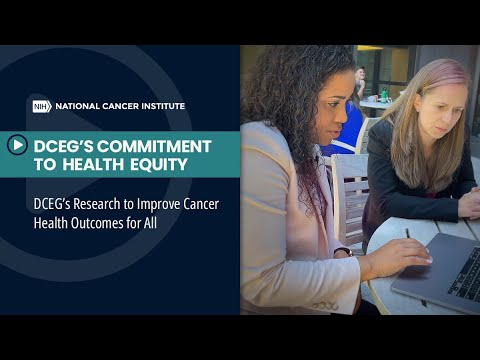Diversity and Inclusion at DCEG

The Division has a long-standing commitment to the recruitment, retention, and development of a diverse group of investigators and trainees. The DCEG 2020-2025 Strategic Plan prioritizes “recruitment strategies to attract highly qualified and diverse candidates." These efforts are led by Jackie Lavigne, Ph.D., M.P.H., Director of the Office of Education, who oversees training and career development for the DCEG fellowship program and various levels of scientific staff, Anil Chaturvedi, Ph.D., senior investigator in the Clinical Genetics Branch and Senior Advisor for Faculty Development, and Erica Johnson, Ph.D., DEIA Resource Specialist.
DCEG's Commitment to Diversity
-
 Cancer Disparities Among LGBTQ+ People
Cancer Disparities Among LGBTQ+ PeopleDr. Jackson was featured in the Cancer Currents Blog for advocating to increase sexual orientation and gender identity data in cancer research.
-
 NIH EDI Blog Features Post by Jongeun Rhee
NIH EDI Blog Features Post by Jongeun RheeInvestigating disparities in exposure to potential environmental carcinogens in Asian American, Native Hawaiian, and Pacific Islander Populations
Workforce
Emphasis on Recruitment
We recruit trainees through the NCI iCURE Program, participate in recruitment events at scientific meetings of professional societies dedicated to researchers from populations typically underrepresented in the sciences. The Tenure-Eligible Senior Investigator, Multiple Disciplines Intramural Research Program allows DCEG to recruit diverse candidates for senior scientific positions.
To support the workforce pipeline, DCEG staff regularly volunteer with the NIH HiSTEP Program to engage with local high school students from minoritized groups. Read about DCEG participation in HiSTEP.
Programs to Sustain Diversity in Research
DCEG staff are active partners in NCI diversity and inclusion initiatives to retain individuals from groups typically underrepresented in research careers.
Our postdoctoral fellows compete successfully for positions in NCI-supported programs that provide coaching, training, additional support, and research funding:
The NIH Office of the Director, Chief Officer for Workforce Diversity supports the career development of scientists from diverse backgrounds through the NIH Distinguished Scholars Program (DSP).
Supporting Diversity through Continual Learning
To support and maintain a diverse workforce, DCEG staff elect representatives to the Women Scientist Advisors and leadership and staff serve on the NCI Equity Working Groups.
In 2018, DCEG began the Inclusivity Minute Email Project as a joint effort between the DCEG Fellows Committee and Division Director to cultivate a culture of inclusion. Inclusivity Minute email messages address relevant topics and provide resources for learning more. Learn about the Inclusivity Minute.
DCEG's Diversity & Workforce Efforts in the News
-
 Disparities in Mortality Rates Revealed by Disaggregating AANHPI Data
Disparities in Mortality Rates Revealed by Disaggregating AANHPI DataThis study emphasizes the importance of separating Native Hawaiian and Pacific Islander individuals from Asian American individuals in medical research.
-
 Jacqueline Vo Selected for NIH Distinguished Scholars Program
Jacqueline Vo Selected for NIH Distinguished Scholars ProgramDr. Vo was selected for this highly competitive career development program.
-
 2025 DCEG Fellows' Awards for Research Excellence
2025 DCEG Fellows' Awards for Research ExcellenceThese awards recognize the outstanding scientific research performed by DCEG fellows.
Research to Address Health Equity
The Division of Cancer Epidemiology and Genetics has renewed its commitment to conduct research that delineates and understands differences in cancer etiology and outcomes in populations underrepresented in biomedical research in the United States and globally. To that end, DCEG has prioritized cancer health equity research as an area for expansion, and has identified research goals to reduce health disparities and achieve cancer health equity.

Health Equity: DCEG's Commitment to Research to Improve Cancer Health Outcomes for All
Research across the Division touches on inequities in cancer risk and outcomes. The Cancer Health Disparities Working Group (CHDWG) provides space for discussion of new ideas and promotes collaboration among researchers from different fields of expertise within DCEG as well as across NIH. The group strives to synergize efficient and timely changes in our research to be able to promote discovery of the determinants of cancer in diverse populations across race/ethnicity/ancestry, gender including gender identity and sexual orientation, and socioeconomic status.
The Fellows’ Cancer Health Disparities Interest Group, founded in 2020, serves as a platform to discuss health disparities, including but not limited to cancer, and to help fellows and Division staff identify important questions in cancer health disparities.
Awards to Recognize Excellence and Support Research on Health Disparities
Fellows are regularly recognized by DCEG and outside organizations for their research excellence, particularly on topics related to health disparities, including:
- DCEG Cancer Health Disparities Research Award for Postdoctoral Fellows
- Coleman Minority Health and Health Disparities Research Innovation Award from the National Institute on Minority Health and Health Disparities at the NIH
- CCR/DCEG Health Disparities Flex Award, launched in 2022, is a competitive program to provide funding for collaborative intramural research projects.
- Eddie Méndez Scholar Award from the Fred Hutchinson Cancer Research Center